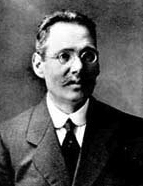

David Lopes had been a great admirer of Alexandre Herculano’s work since his school days, seeking to study the different Arabic texts in order to clarify lesser-known aspects and topics that aroused his interest. The results of his work include the definitive editions of História de Portugal (the 7th) and Eurico, o Presbítero, as well as numerous additions to these works. In addition to this work, he studied the Arab influence on the Portuguese language and the extensive list of place names whose origin he helped to clarify. In his work Os árabes nas obras de Alexandre Herculano (1910, vol. III, p. 50), he states: “There are six chapters that rectify some historical facts, complete others, and in any case clarify more than one success that the documents of the time, or ignorance of the Arabic language, did not allow to be elucidated: his memory is not diminished in this study, but rather it shows that knew how to draw from the sources known to him at the time what an honest and perceptive historian could find in them; and it is not surprising that more than fifty years later something more can be said.”
When studying vocabulary of Arabic origin, it was necessary to acquire solid historical knowledge of the permanence of the various peoples who inhabited the different regions. But, in addition to the Arabic language, it was important to know other languages and dialects of populations that inhabited the peninsula for longer or shorter periods (such as the Berbers). It was imperative to understand the phonetic phenomena that governed the acquisition of new vocabulary or its evolution into another language. David Lopes’ contribution was significant in Portugal and widely recognised by the scientific community at the time, remaining valid for almost all of the etymologies studied. In 1902, in the article Toponymia arabe de Portugal, David Lopes wrote: “In the Arabic toponymy of the Peninsula, we must consider two categories of words: a) words of various origins, peninsular, which, having passed through Arabic, can be explained by it; b) words that are purely Arabic or introduced by the Arabs”. The phonetic laws defined by the author helped to explain the origin of words such as Faro, derived from the name of the family of local governors, Ibn Harune. The great originality and importance of toponymy was recognised by several later authors, such as Pedro Cunha Serra, professor of Arabic at the Faculdade de Letras de Lisboa [School of Arts and Humanities of Lisbon] and author of the doctoral thesis Contribuição topo-antroponímica para o estudo do povoamento do noroeste peninsular [Topo-anthroponymic contribution to the study of the settlement of the north-western peninsula], presented to the Faculdade de Filosofia e Letras de Madrid [School of Philosophy and Arts and Humanities of Madrid] and published by the Centre for Philological Studies in Lisbon in 1967.
This work is financed by national funds through FCT - Foundation for Science and Technology, I.P, in the scope of the projects UIDB/04311/2020 and UIDP/04311/2020.
